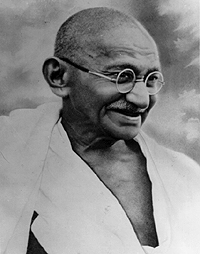
1) British Pros
Britain actually brought a multitude of positive things to India when it imposed its rule upon the native Indians. The best things that the British accomplished in India were social reforms, including a better environment for women. Women were treated quite poorly in native India before the British. The custom of "suttee" was prohibited, thankfully, with the invasion of the British. Also, the killing of female infants was monitored and measures were taken to stop it.
The British introduced a multilevel educational system to India, including basic schooling for females in the lower grades.
Higher health standards and better water systems were also results of Britain's reign. They were, in terms of general physical health, the most positive things that the British brought. In general, India became more "civilized", but socialy, India lost it's identity by being conquered, as did any nation that became a European colony. When Britain originally assumed control of India, some Britons assimilated into the Asiatic culture, or even intermarried.
After a while, Victorian notions of morality dictated that the native Indians were savages and heathens and no amount of social conditioning could change that. Therefore, they stopped social reforms. Britons believed that Indian customs proved that they were correct in believing that the natives were heathenistic savages. By being polytheistic, the Hindi and Muslim religions were denounced later by missionaries.
Microsoft Bookshelf defines "vernacular", when used as an adjective, as the following:
1) Native to or commonly spoken by the members of a particular country or region.
2) Using the native language of a region, especially as distinct from the literary language.
3) Relating to or expressed in the native language or dialect.
The Vernacular Press Act imposed severe restriction on the vernacular press which was believed to be used to spread radical, nationalist ideas.
At 1st glance in a history book, one would think that the Ilbert Bill Act was a step forward for the native Indians, it gave Indians the ability to prosecute Europeans. But, due to pressure by the Europeans, it was repealed.
The native Indian peasants took British Imperialism as another form of casteism that had plagued them through the centuries. To them, it did not matter who was in power because no matter what group it was, they as a class would always go hungry and would be forgotten.
The middle class on the otherhand was the main source of backlash against the British. It was from them that the intelligentsia, who staged many a political action against the British, sprung.
For a British officer to be seen at the home of Indian Royalty was considered an honour. They were the only class of Indians that the British had any respect for, due to their lack of political motivation.